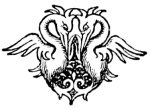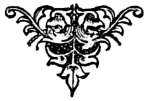
Title: Lancashire Songs
Author: Edwin Waugh
Release date: November 9, 2017 [eBook #55921]
Most recently updated: October 23, 2024
Language: English
Credits: Produced by MWS, Paul Marshall and the Online Distributed
Proofreading Team at http://www.pgdp.net (This file was
produced from images generously made available by The
Internet Archive)


BY
EDWIN WAUGH.
London: Simpkin, Marshall, & Co., Paternoster Row.
Manchester: A. Ireland & Co., Pall Mall.
1866.

CONTENTS.
| Page. | |
| Come whoam to thi childer an’ me | 7 |
| What ails thee, my son Robin? | 10 |
| God bless these poor folk! | 12 |
| Come, Mary, link thi arm i’ mine | 15 |
| Chirrup | 19 |
| The dule’s i’ this bonnet o’ mine | 22 |
| Tickle times | 24 |
| Jamie’s frolic | 27 |
| Owd Pinder | 31 |
| Come, Jamie, let’s undo thi shoon | 33 |
| Th’ goblin parson | 35 |
| While takin’ a wift o’ my pipe | 38 |
| God bless thi silver yure! | 41 |
| Margit’s comin’ | 44 |
| Eawr folk | 47 |
| Th’ sweetheart gate | 50 |
| Gentle Jone | 52 |
| Neet-fo’ | 55 |
| Aw’ve worn my bits o’ shoon away | 58 |
| Yesterneet | 60 |
| Bonny Nan | 63 |
| A lift on the way | 66 |
| Tum Rindle | 69 |





















Air—“Th’ Rakes o’ Mellor.”


Air—“The Manchester Angel.”

Air—“Jenny’s Bawbee.”


Old Air—“When Dolly and I get wed.”





Air—“Come, sit down, my cronies.”

Air—“Robin Tamson’s Smithy.”


MANCHESTER:
A. IRELAND AND CO., PRINTERS,
PALL MALL COURT.
Transcriber's Notes:
The cover image was created by the transcriber using elements from the original publication, and is in the public domain.
Antiquated spellings or ancient words have been preserved.
Typographical errors have been silently corrected but other variations in spelling and punctuation remain unaltered.